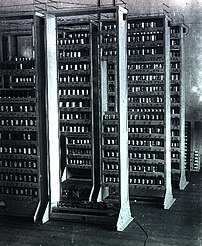Windows* client CIFS behavior can slow Linux* NAS performance:-
We have compared the performance of Windows* and Linux*-based CIFS* (Samba*) servers for digital media applications and found that the ext3*-based Linux server’s throughput was up to 53% lower than the Windows server’s–although both used identical hardware (Figure 1). An XFS*-based Linux server had roughly the same performance as the Windows server. Our investigation shows that the difference lies in the filesystem allocation and handling of sparse files. In particular, the Windows client makes an assumption that the CIFS fileserver uses NTFS*, a filesystem that assumes files will be data-full (not sparse). This contradicts a fundamental assumption of ext3–that files are sparse–and leads to fragmentation of files and degraded performance on ext3. Further, we’ve seen this behavior manifested for a broad range of media applications including iTunes*.

![Reblog this post [with Zemanta]](http://img.zemanta.com/reblog_e.png?x-id=1f86798c-764a-40ca-afbe-ba7531ed1ea1)
![Reblog this post [with Zemanta]](http://img.zemanta.com/reblog_e.png?x-id=489a8fa2-9d73-4395-9525-22c38b8b01af)
![Reblog this post [with Zemanta]](http://img.zemanta.com/reblog_e.png?x-id=c8c03629-97ff-4a87-a0ad-a27dcf48f7e7)

![Reblog this post [with Zemanta]](http://img.zemanta.com/reblog_e.png?x-id=40e0865c-646b-4f4b-8803-1b56a83abc3a)